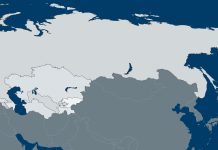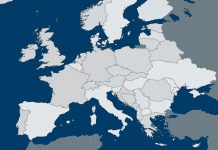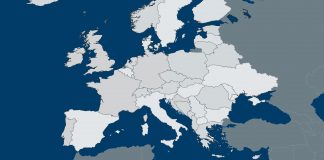2022 will bring two major diplomatic events for the trans-Atlantic community. First, in March, the European Union will adopt its Strategic Compass, a document meant to establish a common view on EU security and defense and thus to define, however vaguely, the notion of Europe’s “strategic autonomy.” Then at the Madrid Summit in June, NATO will adopt its new Strategic Concept, which lays out the strategy of the alliance, outlining its purpose and its fundamental security tasks and identifying challenges and opportunities it faces in the changing security environment. And as with all such documents, they serve a political purpose too in that they signal to the world how the EU and NATO see defense, security and trans-Atlantic ties.
But the debate leading up to the signing of the documents is more important than the final wording. The questions raised between now and then and the discussions over their answers paint a new European reality taking shape, one that could give way to increased bilateralism or close regional coordination within NATO and between specific member states on core strategic issues.
The Past
The end of the Cold War gave NATO and the EU a unique opportunity to expand eastward. The costs of doing so were minimal, the benefits of globalization were many, and the absence of a regional challenger made it relatively safe. But as Russia and China grew into regional powers, and as the 2008 economic crisis exposed the weaknesses of globalization, the EU and NATO needed to adapt to new global realities.
The EU has responded by restructuring itself as best it can, a process complicated by the struggle to maintain consensus between members that don’t share many interests. NATO, a military organization dominated by a non-European power, has adapted by developing political functions that ensure the collaboration and coordination of member states and, since 2008, a practical focus on building up its eastern flank and the containment line between the Baltic and the Black Sea.
During that time, the definition of “defense and security” has come to be very different for Eastern and Western Europe. A resurgent Russia was a matter of national security for the eastern EU member states, so they have spent more to increase military capabilities in NATO. Western EU member states have struggled with economic problems and migration flows from Africa and the Middle East, things that NATO can do little about. Meanwhile, the reality of China becoming a regional power in Asia has increased U.S. concerns about the Pacific. This, in turn, made Washington ask for the Europeans to up their game in NATO and ensure their own security. With a post-Brexit U.K. seeking to renew ties with the Commonwealth and becoming more interested in the Pacific too, the EU (especially its western members) seems to have had a stark realization that security is an internal and urgent priority for its development.
France has proposed that the EU develop a common stance with regard to security and defense. France will hold the EU’s rotating presidency in the first six months of 2022, and President Emmanuel Macron announced Dec. 9 that among the French priorities for the coming months is to increase the EU’s ability to defend its borders. At the same time, a conference on defense was announced by the president of the European Commission ahead of the Strategic Compass signing in March. Time and again, the term “strategic autonomy” has come up as the solution for building the EU’s security and defense. Expect it to do the same in the coming months.
The Present
It’s an important concept because, as we said earlier, member states have different threats. Some of those threats change – indeed, many have under the frailty and uncertainty of the post-2008 global economy – but some do not. Some are more appropriately mitigated by one institution rather than another. For example, the nature of the threats against Eastern Europe, and by extension against the U.S., involve growing Russian influence, including a military buildup, in the east. The solution for such a threat relates to defense and deterrence and therefore falls under NATO’s purview rather than the EU’s. Western and Southern Europeans are facing socio-economic security issues, something that falls under the EU’s umbrella and calls for Brussels to deliver a solution.
Unsurprisingly, the debate over the Strategic Concept and the meaning of strategic autonomy will be a function of members’ divergent interests. And the resolution is even more complex than it first appears. For one thing, Europe’s security environment is deteriorating thanks in part to socio-economic problems, including migration, brought on by the COVID-19 pandemic. These problems will affect different EU countries differently – which means the negotiation process between the west and the east and the north and the south needs to ensure a balance between all member states’ interests.
Then there is the U.S., which has by far the strongest military of all NATO members. There is growing pressure in the United States for Washington to resolve some problems of its own. Europeans need to make sure that the U.S. can maintain its security guarantee to Europe past the eastern flank, where Washington has a strategic interest in curbing Russian influence. Promising to increase defense spending, as many members have, is a good way to keep the U.S. engaged, but that works only for so long. Europe is thus under pressure to spend real money on real defense measures at an economically tough time.
Third, everyone in NATO and in Europe has different interests in the Indo-Pacific. France, for example, has openly complained about the U.K. working against its interests in the Pacific, while admitting that the EU would need to work with the U.K. on all matters concerning migration. The U.K. has been supportive of, and has even contributed to, the eastern flank build-up. More, Europe’s relations to China are shaping policy in the Indo-Pacific – and while most Eastern European states are standing by the U.S., not all are.
Finally – and perhaps most importantly – there is semantics, for with semantics come political interpretations. There are important distinctions between the French and the English meanings of the word “autonomy,” which have already created tensions and misunderstandings. The Anglophiles – those who prefer English as their language of choice (count the Eastern Europeans in this group) – understand autonomy to be “independence” in the sense of equality to the other players, while the Francophiles understand it to mean “authority” or “decentralization,” in the sense of self-government over the matter of defense. Indeed, building a “European Army” or a “sovereign” European defense that’s completely independent from and equal to the U.S. remains impossible for many years to come. Autonomy, in the Francophile sense of building a stronger European role within the framework of the Atlantic alliance, can be seen as a metaphor for increased European responsibility. This would be particularly helpful if Europeans have the ambition, as they suggested through recent speeches and papers, to act as credible high-end first responders in and around Europe in an emergency in which U.S. forces might be engaged elsewhere by 2030.
The debate on semantics is raising another question: Are we talking about the EU or about European strategic responsibility? The way the EU’s Common Security and Defense Policy (CSDP) is set up allows the EU to modestly undertake crisis response operations. Challenging scenarios of engagement and deterrence need the support of NATO, as well as the U.S. and the U.K. Therefore, if strategic autonomy is to be built on the CSDP’s foundation, there would be a need to reinforce the practical relationships established between CSDP and so-called third countries. This would establish the mechanism for the EU to access NATO assets and structures. But such discussions are likely to be complex since they would refer to practical manners that would make the NATO-EU partnership operational.
The Future
For European strategic autonomy or European responsibility to grow within NATO as France proposes, Paris needs to secure the buy-in of London and Berlin. The new German government has suggested it will fulfill NATO’s defense investment pledge and that it’s dedicated to NATO’s plans. Berlin will be the first to worry about the political interpretation of the term autonomy and emphasize the need for unity in Europe. For Germany, any discussion about European “sovereignty” is acceptable if it is linked to NATO and its defense capabilities. The U.K., meanwhile, is negotiating its stance with the EU and is trying to build bilateral ties with European countries like Poland and others outside Europe, but it is convinced that Europe needs to increase its strategic responsibility within NATO by the operational status quo of the alliance. And yet it has no interest in prioritizing the buildup, as it can simply retreat behind its increasingly capable navy and its nuclear deterrent and continue to refocus beyond Continental Europe.
Of all NATO members, the U.S. is the most interested in a more strategically responsible Europe. Washington has been saying as much since the Obama administration. The benefits are fairly obvious. Europeans could take on more responsibility for the Western Mediterranean and parts of North Africa and make collective defense possible with no need for American divisions to rush to the rescue. And even if the current discussions fail, bilateral relations or regional alliances within both the EU and NATO are set to prevail.
The debate around the NATO Strategic Concept, along with the one on European strategic autonomy, is complex and challenging. Considering the current socio-economic problems that the U.S. and Europe are facing, it is not only hard to reach consensus, given the multitude of issues that countries are facing, but it is also difficult for discussions to even be interpreted the same way. However, if the debate leads to a compromise that facilitates increased European responsibility through strategic autonomy, it promises the opportunity of a renewed bond between the U.S. and Europe.






 Special Collection – The Middle East
Special Collection – The Middle East